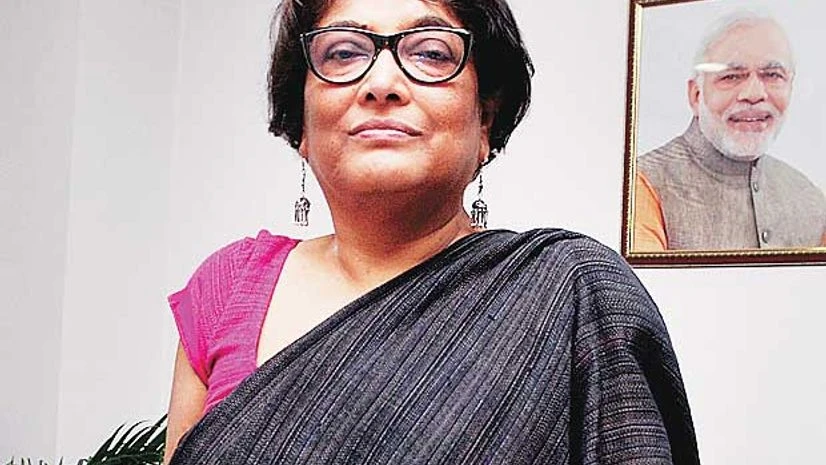The department of posts is leaving no stone unturned to ride on the e-commerce boom across the country. From making dedicated corridors for delivery to training postmen to handle big volumes, besides connecting all postal products through technology, the department has chalked a strategy to overcome the shift in their functioning. Secretary of Department of Posts, Kavery Banerjee, tells Mansi Taneja the plan for e-commerce and the payments bank venture. Excerpts:
E-commerce has come as a boon for the postal department. What is the long-term strategy to boost revenues?
We have been focusing on our strategy and how to move forward for the past one year. E- commerce has emerged as a key opportunity. Our revenue and parcel revenues have grown by 120 per cent. We are grappling with a paradigm shift. A fresh look is being given to ways of processing, transmission, and delivery. We have set up 48 dedicated processing centres for handling parcels.
Also Read
The maximum orders are coming from smaller places where aspirations are high - Tier-II and -III cities and small villages such as in Leh and Ladakh and north-eastern regions.
India Post is a natural partner for e-commerce companies because of our reach and network. We are looking at 100 per cent year-on-year growth and by March we will generate revenues of Rs 250 crore from parcels and speed post. Through cash-on-delivery, we reached Rs 1,200 crore.
How are you coping up with huge volumes from the e-commerce sector? Do you plan to purchase your own vehicles for a better delivery mechanism?
We are struggling with huge volumes in e-commerce. We are struggling with airlines, that have their own capacity constraints.
Planning to set up dedicated routes through roads for delivery. We are also in the process of aggregating delivery centres and booking offices. It will be vehicle-driven.
We are exploring how to incentivise postmen to use their vehicles for delivery where possible. In hilly and difficult terrains, the mode has to be on foot.
For major areas, we plan to outsource vehicles.
What kind of incentives?
We want to make it more attractive to postmen/delivery agents for using their own vehicles and considering various options. We have set up a committee to look into the compensation of rural officers, mainly who work part-time and plan to restructure accordingly. This happens every time the Pay Commission is announced.
The committee's report will be out in sometime, after which we have to look at the financial implications and take finance ministry's approval for it.
There have been issues with last-mile delivery. Many e-commerce firms have been complaining about delays in delivery and loss of items.
We have put in a place a track-and-trace system. Technology has not reached smaller post offices, which is why it takes time to upload information.
We have explained this to all our e-commerce partners about timings in smaller towns and villages. One can't expect a delivery in a village within a day.
We have made arrangements to deliver outside office hours and even, on holidays now.
Also, we will be connecting all our postal products - letters, parcels and other - through technology, which will enable immediate uploading of information - booking, delivery and timings. Currently, the trials are going on and we plan to roll it out by end of this year. We have also rolled out solar powered handheld devices through which one can send money orders/remittances and also make payments for various government run schemes. The department is looking to roll out 20,000 such devices by end of this month and 130,000 by end of March 2017.
How are you training your existing staff with this change in the functioning of the department? Are you concerned over the age profile?
E-commerce in India has suddenly taken off, in the last two years, while in the West, they moved towards it gradually over 15 years. It has taken us by surprise as well.
There are many rounds of training going on for the staff all over the country. Courses are available online as well with a focus on e-commerce.
We are working on their skills - how to interact with people. Age profile is shifting, we have inducted a lot of young people recently. Many of them are engineers. For instance, for 800 vacancies in Delhi, we got some 30 lakh applications and most of them were doctors, engineers, paramedics. These people come with a certain background and are comfortable using technology. We are also rotating people in different sections.
What is the update on your Payments Bank venture. Will it be first step towards a full-fledged bank?
We have selected a consultant for this venture. We have to submit the plan to RBI March 2017. We want to leverage our reach and network. Every post office will be a point of access. We also plan to set up white labeled ATMs.
We will have various tie-ups for the venture, will mix use of delivery staff to facilitate doorstep banking. Our 2.8 lakh network of small saving agents will also be used. We can also partner with banks to offer credit products. We will launch products which will not be in direct competition to our existing portfolio.
Money order might be hived off and make way for remittances through Payments bank riding on technology. It will be much cheaper, we have seen traffic coming down in money orders because it is expensive.We will also look at last mile delivery of payments. We will hire set of professionals for running banking operations of Payments Bank.
The plan is to set up a full bank, Payments bank is the first step. Banks consider us to be a serious threat and there is serious resistance against us getting into banking space.

)
